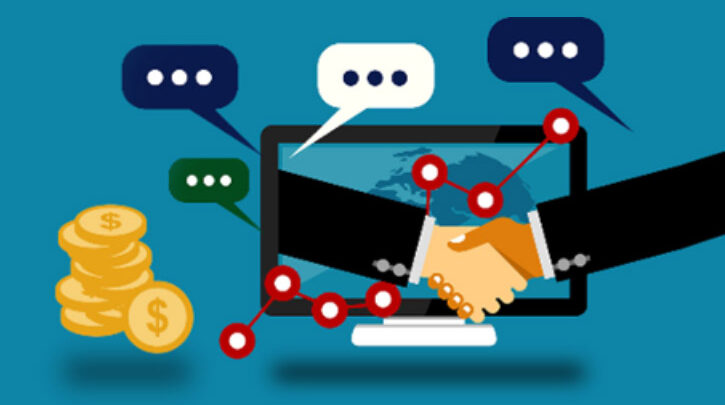
The legalization of recreational cannabis has led to a rapid expansion in many areas of the industry. The legal cannabis industry faces many challenges, including regulatory and economic issues. As a result, many cannabis companies face significant scrutiny from investors, lenders and regulators.
Numerous states have now passed legislation allowing adult cannabis use. Alaska, California and Colorado have all legalized recreational cannabis. The amount of adult users of marijuana has increased from just 40 percent in 2012 down to over fifty percent today. These users include many women.
Women are often overlooked in marijuana research, but they are an integral part of the industry. Forbes magazine's recent survey found that over 38% of workers in cannabis businesses are women. Females are important because they have the purchasing power to buy cannabis products at a higher rate than males.

Women are an integral part of the rapid growth of the cannabis industry. They are changing consumer behaviour by increasing their consumption of cannabis. This is causing a shift of how people spend their money. Young consumers are also shifting away from alcohol and choosing to spend money on cannabis products.
Despite the industry's past difficulties, the future looks bright. Major players have entered this market to benefit from the potential. Constellation Brands, Scott's Miracle-Gro and Kind Financial are just a few of the companies that have invested in marijuana-related businesses.
There have also been speculations that major pharmaceutical companies, such as Johnson and Johnson, may enter the marijuana industry. Recently, FDA approval was granted to GW Pharmaceuticals for Epidolex. This drug is derived from naturally-derived cannabis cannabinoids.
The U.S. has seen cannabis grow to be a multi-billion dollar industry despite it being a Schedule 1 drug by the federal government. It is growing rapidly and is expected that it will be worth approximately $100 Billion by 2030. New Frontier Data projects that the industry's annual compound growth rate will be around 11% between 2020 and 2030.

One of the biggest challenges in the cannabis industry is navigating compliance and tax regulations. Companies must maintain transparency in order to achieve this. They should also be prepared for Section 280E, Internal Revenue Code. These challenges can make it difficult for businesses to get the financing they need to grow.
Despite its challenges, the estimated legal adult cannabis market will reach $24 billion by 2025. Canada was the first country that legalized private sales of marijuana. Together, they will help to support the marijuana industry.
A prolonged slowdown in mergers is causing financial problems. There is also the risk of cannabis overproduction and inflation. But the cannabis industry has more resilience than most industries, and is well-prepared for recessions.
FAQ
Can I use CBD during pregnancy?
It is not clear if CBD is safe for use during pregnancy.
However, the little information available suggests that CBD is unlikely to cause harm to the baby.
Pregnant women should not take CBD unless their doctor has recommended it.
A recent warning was issued by the Food and Drug Administration about possible risks from CBD consumption during pregnancy.
FDA states that there are some indications that cannabis use during pregnancy could increase the chance of miscarriage.
The agency said that more research is needed to reach a firm conclusion.
How big is global CBD market size?
Euromonitor International estimated that the global CBD industry was worth $US3.5 billion in 2015. This represents an increase of over 10% from 2014.
The report forecasts this figure to reach $US 6.4 billion by 2020, representing an average annual growth rate of 12%.
By 2020, CBD products will account for approximately half of all global hemp-derived products.
This includes both CBD oils and other CBD products such as food, beverages, cosmetics, and pet care items.
Is CBD a good business to invest in?
As more people are aware of the many benefits of hemp-based products and their market, it continues to grow. There could be $1B worth of hemp products on the shelves by 2022.
The market is also expected to continue growing at an annual rate of over 20% until 2020, when it reaches $2.5 billion.
Hemp oil can be found in many beauty and health products, including lotions, shampoos and lip balms, moisturizers and body butters.
A number of companies produce CBD-infused beverages, pet foods, dog treats, snacks, and other food items.
CBD is currently legal in all 50 states, although this may change soon. Businesses will find it easier to legally operate legally as more research is done on CBD's potential uses.
With these factors in mind, it's clear that investing in CBD can be a lucrative venture.
How much CBD do I need?
It all depends on the product you're purchasing.
CBD oils can be purchased in strengths of 100mg up to 1,000mg per bottle.
There are many companies that make CBD products in very specific dosages. For example, 25mg, 50mg or 75mg.
Charlotte's Web produces CBD products with high levels of CBD and other substances.
You can start slowly if you aren't sure if CBD will work for your needs.
It is possible to always go higher.
Statistics
- however, one study also found that these effects were virtually abolished when the original media (a nutrient broth agar) was replaced with one containing 5% blood (increasing the minimum concentration to ~160 μM CBD) [179]. (ncbi.nlm.nih.gov)
- OralWhere HED is the human equivalent dose, and Km is a correction factor estimated by dividing the average body mass (BM) of the species (60, 0.020, and 0.150 kg for 11 humans, mice, and rats, respectively) and by its surface area (see: Nair et al. (ncbi.nlm.nih.gov)
- CBD seems unlikely to directly influence sleep in healthy humans [115] (and maybe “sleep-promoting” in those with certain comorbid conditions) (ncbi.nlm.nih.gov)
- The inhibition of FAAH is predicted to lead to an increase in brain and plasma concentrations of AEA, which acts as a partial agonist at CB1R and CB2R, thereby increasing endocannabinoid tone [92, 110]. (ncbi.nlm.nih.gov)
- As a substance that was federally illegal before the passage of the 2018 Farm Bill, hemp-derived cannabinoids with no more than 0.3% THC still face a regulatory grey area. (forbes.com)
External Links
How To
How to Get Certified for Selling CBD Products
CBD (cannabidiol), is one of hundreds of cannabinoids in cannabis plants. It has been used medicinally throughout history. This includes in South America, China, India and China. The ability to treat conditions such anxiety, pains, epilepsy, and inflammation has made CBD products extremely popular in recent times. There is no formal certification program for CBD products. At least, not in the U.S. Anyone who wants to sell CBD products will have to use the "unofficial", self-certification process.
There are two methods to do this. First, join a local canna-business owner association. You can get support and advice from other members while learning from them. There are currently numerous associations all over the country. The second option is to take your business online. Most states now allow canna-businesses to operate online. If you have the permission, you can start accepting orders and set up your website. You must register with the Department of Public Health in your state. After you have registered, you can apply for a license from your state's Department of Public Health. Once you have your license, it is legal to open your shop and accept orders.